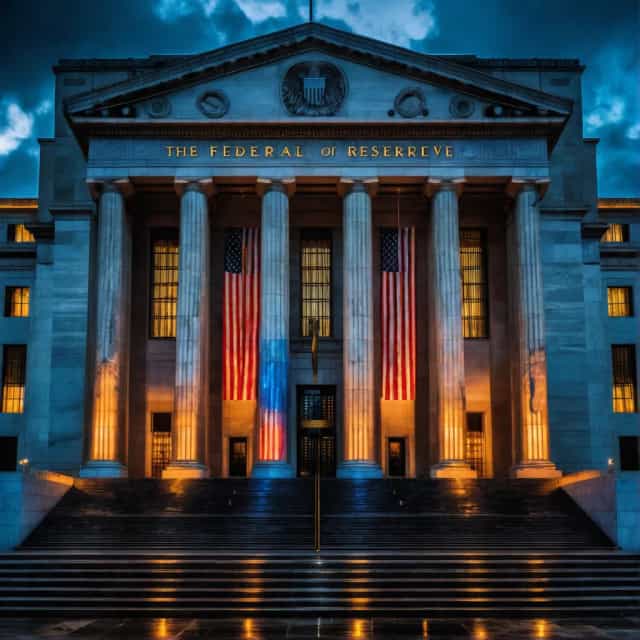
출처: Block Media
U.S. Senate Confirms Stephen Miran to Federal Reserve Board in Razor-Thin Vote
On October 15, the U.S. Senate confirmed Stephen Miran, an economic advisor to former President Donald Trump, as a member of the Federal Reserve Board in an exceptionally close 48-47 vote. This confirmation solidifies a pivotal position at the nation's central bank for an ally of the Trump administration amid stark partisan divisions.
GOP Cheers for Miran's Appointment
Republican Senator Tim Scott of South Carolina, Chair of the Senate Banking Committee, described Miran’s confirmation as "a victory for the American people." Scott emphasized Miran’s qualifications, stating, "He brings extensive experience, proven leadership, and a clear commitment to maintaining the strength and competitiveness of the U.S. economy. I am confident he will act independently."
Stephen Miran's Views on Economic Policy and Digital Assets
Miran has become a prominent voice in economic discussions, particularly surrounding financial innovation and economic deregulation. During a December 2024 interview with The Bitcoin Layer, Miran highlighted the significance of digital assets, suggesting their role could be transformative for technological and financial innovation in the U.S. economy. He also pointed to deregulation as an integral factor behind the Trump administration’s economic success, calling it a cornerstone of growth during that era.
Concerns Over Political Independence of the Fed
Miran’s confirmation has sparked heated debate among Democratic lawmakers, who voiced alarm over the potential risks to the Federal Reserve’s political independence. At the center of this discontent is Miran’s decision to maintain his position as Chair of the White House Council of Economic Advisors (CEA) in an unpaid leave capacity while serving on the Fed’s Board. Critics argue this dual role undermines the neutrality long cherished by the Federal Reserve.
This confirmation is part of broader efforts by Trump to exert influence over the Fed. Earlier, Trump sought unsuccessfully to remove Fed Governor Lisa Cook, a move blocked in court.
Senator Elizabeth Warren of Massachusetts, one of the most outspoken critics of Miran, accused Trump of attempting to politicize the Fed for personal objectives, describing Miran as "a puppet." Warren asserted, “Trump’s months-long campaign to turn the Fed into his personal ATM is a threat to the stability of our economy.”
Other Democratic representatives echoed similar concerns. Representative Andy Kim of New Jersey criticized what he viewed as a conflict of interest, warning, “The Federal Reserve must remain politically independent. Miran’s dual role as Trump’s top economic advisor compromises that independence.” Representative Ruben Gallego of Arizona expressed fears of negative economic consequences, predicting Miran’s alignment with Trump’s policies could lead to "rising inflation and a worsening job market."
Stephen Miran’s Background: From Harvard to the Fed
Miran’s academic and professional credentials have been central to the debate around his nomination. He holds a Ph.D. in economics from Harvard University and previously served in the Treasury Department during Trump’s first term, where he played a key role in shaping policies to mitigate the COVID-19-induced economic downturn. In addition, Miran is currently a senior fellow at the Manhattan Institute and has experience as chief strategist at Hudson Bay Capital, where he managed trading of FTX bankruptcy claims.
A staunch advocate for financial deregulation, Miran has frequently clashed with former Treasury Secretary Janet Yellen, accusing her of overstepping Treasury’s mandate and encroaching on the Federal Reserve’s independence. His firm stance against bureaucratic intervention resonates with Trump-era economic philosophies, making his appointment a controversial yet impactful one.
Miran’s Potential Influence on the Fed
As Miran takes his seat at the Federal Reserve, his policy views and decisions are expected to face intense public and political scrutiny. His alignment with Trump’s economic ideology, coupled with his expertise in regulatory reform and digital asset strategies, positions him as a potentially transformative figure within the Fed. Whether he will uphold his commitment to independence or tilt policy decisions toward his political affiliations remains an open question, sparking debate that could shape America's economic trajectory.
Follow Block Media on Google News for continued updates, and join the conversation about breaking developments on our Telegram channel.










